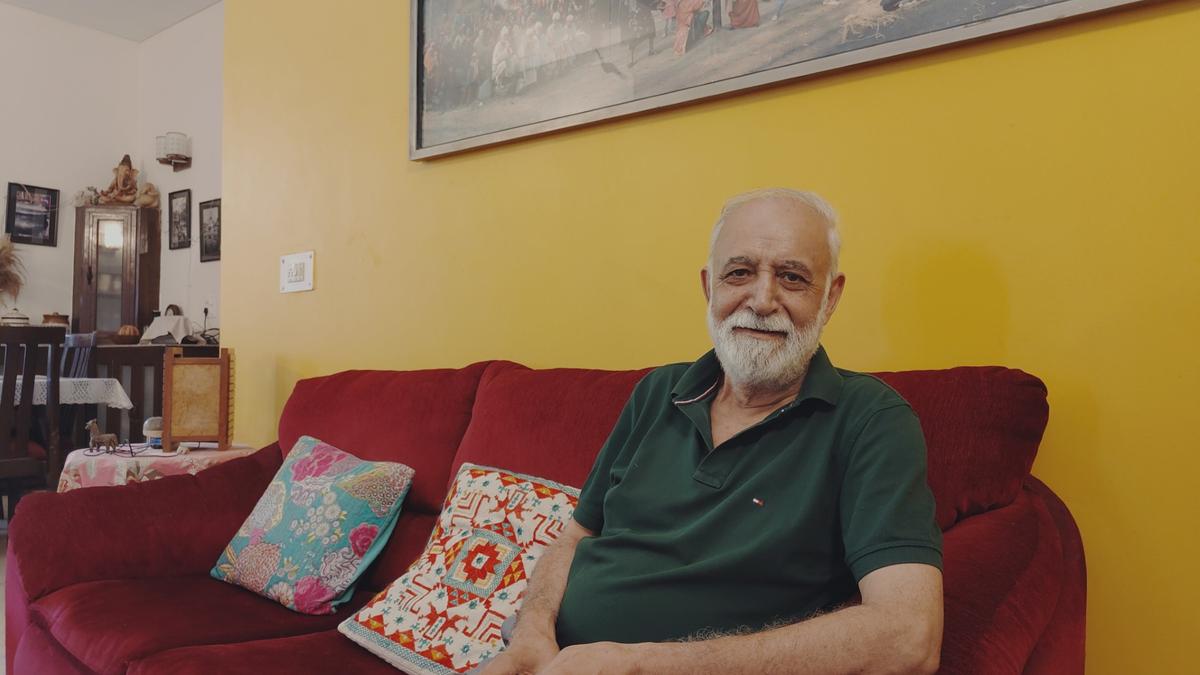
Veteran theatre artiste M.K. Raina’s memoir shows how socio-political happenings informed his craft
The Hindu
Theatre practitioner Maharaj Krishna Raina’s ‘Before I Forget’ traces the historical events that shaped Raina and informed his art
Unhappy is the land that needs a hero.” Maharaj Krishna Raina prefers to practice what German playwright Bertolt Brecht famously said in a country that loves to indulge in hero worship. Over the years, the veteran theatre practitioner has covered his conviction with a gentle smile and used culture as a catalyst for socio-political change in the most sensitive parts of the country. Be it Punjab, Kashmir or the North East, Raina says his mantra has always been, “hero nahin banana hai”, making his art do the talking.
During the pandemic, Raina got time to pause and look back at an enterprising career and the result is an immensely readable account. Aptly titled Before I Forget (Penguin Classics), the memoir traces the historical events that shaped Raina and informed his art. The theft of the holy relic from the Hazratbal shrine in his hometown of Srinagar in 1963, the 1984 anti-Sikh riots in Delhi, the brutal murder of cultural activist and close friend Safdar Hashmi in 1989, the exodus of Kashmiri Pandits, the fallout of Babri Masjid demolition in 1992 and the ethnic tension in the North East, the memoir reads like a layered script where it is impossible to take sides. No wonder his friend and director Sudhir Mishra is contemplating a film script out of Raina’s rich memory. Here is an actor-auteur-activist who stood his ground in turbulent circumstances, at times life-threatening. Like his plays, Raina avoids cliches in real life and finds humour and hope in the dark. Taking a line from his famous play on the Oppenheimer trial much before Christopher Nolan woke up to the relevance of the physicist, Raina says he doesn’t like to follow the ideas of others. In Safdar’s case, he questioned the fascist forces of disruption and along with his friends, which included actor Shabana Azmi, turned the opening ceremony of the International Film Festival Of India in Delhi into a flop show. A few years later, after the demolition of Babri mosque, Raina was again at the forefront, coining the slogan: Ab koi nara na hoga, bas desh bachana hoga (Now there will be no sloganeering, it will only be about saving the nation) and questioned Atal Bihari Vajpayee. When Kashmiri Pandits were driven out of their homes, he held the silence of the secularists responsible for pushing the Pandits and the political narrative into the hands of the right-wing ecosystem.
“We can’t cease to be a citizen,” says Raina. He draws inspiration from the Buddha’s idol where he is in deep meditation but his one hand is touching the ground. “I analyse it for myself as — if you remain in touch with the ground, you won’t go wrong.” Often, he says, the cure of stinging nettle is another weed that grows nearby. “You just have to look for it.” Inquiry, he says, is important in Indian tradition. “Chela guru se sawal karta hai (The disciple seeks answers from the Guru). It is there in our Purarans. It is the crux of the Bhagvad Gita. Unfortunately, this tradition is diminishing.” Raina describes himself as the “product of the socialist India” that allowed him plenty of affordable books and an opportunity to hone his craft at the National School of Drama. “Majority of us were from modest backgrounds with a rich repertoire of tradition and no inferiority complex.” He was perhaps the first who truly followed the purpose of the theatre school: taking the art form to the grassroots.
Battling stereotypes, Raina worked hard to revive folk theatre in Kashmir valley at the turn of the millennium. “I revived my links with the traditional artist villages that dot the area between Anantnag and Pahalgam and worked quietly. He provided them with opportunities to contribute to theatre. “We requested local potters to make masks and implored tailors to tweak their craft to create costumes. A trunk maker improvised to design artificial swords.” When the audience size reached 5000, the separatists woke up to Raina and his team’s presence in Pir Panjal. “They tried to thwart our efforts but by then villagers had realised culture’s role in venting pent-up feelings. They would tell those with the guns: ab tum humein hasne bhi nahin doge. (you won’t even allow us to laugh).” Raina fondly remembers his acting stint that started with Avatar Kaul’s avant-garde 27 Down with Rakhee where he played a ticket collector. Shot on a real train, Raina remembers that the authorities gave in to the persistence of the young team. “As long as you could hide the cameras, it was not too expensive to shoot on platforms and trains. In fact, at times, passengers took me as a real TC. Shooting on railway stations and trains became expensive only after B.R. Chopra made The Burning Train.”
Raina went on to work with stalwarts of art house cinema like Mani Kaul and Mrinal Sen. “We were part of a movement that believed in healthy theatre and wanted to carry forward the same sensibilities in cinema but the movement fizzled out when the filmmakers started to rope in stars under box office pressure,” says Raina.











